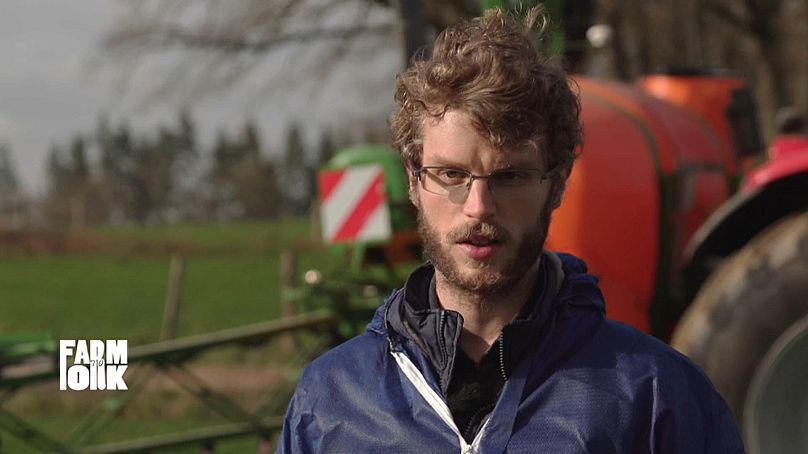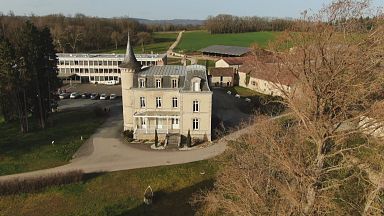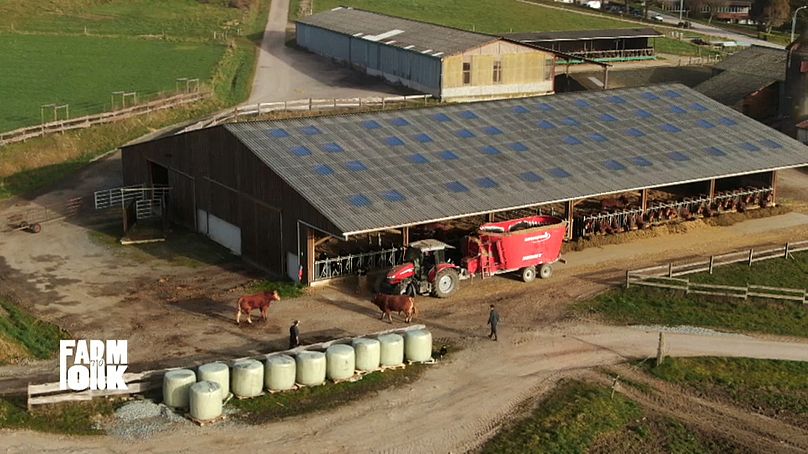One of the EU's green goals is to reduce the use of harmful pesticides by 50% by 2030. To achieve this goal, educational initiatives and new methods are being taught to new generation of farmers across Europe.
Modern agriculture faces two big challenges today: an increased global demand for food and the need to grow crops more sustainably.
 ADVERTISEMENT
ADVERTISEMENT
 ADVERTISEMENT
ADVERTISEMENT
Overexploitation of land and the environmental pollution it causes has created a climate for change. Mitigating the effects of global warming and protecting biodiversity are crucial.
The 'Farm to Fork Strategy' at the heart of the European Union Green Deal aims to create a healthier and more sustainable EU food system. One of its key targets is to reduce by 2030 the overall use and risk of chemical pesticides by 50%. This includes lowering the use of high-risk pesticides by 50%.
New methods to reduce pesticide use
At the Institute of Agriculture in Ahun, promoting a greater use of alternatives to pesticides and protecting harvests from disease, is a top priority. To achieve this goal, agricultural experts there are using protocols created by the DEPHY'S network, a French public initiative helping farmers move towards more sustainable production methods.
Some of their actions include tailored crop strategies, ways to avoid the most polluting products and reinforcing plant immunity with natural biostimulants.
This coordinated strategy has direct advantages for the environment. It's also better for the farmers' health as they are less exposed to pesticides themselves. According to Benoit Thiret, coordinator at the DEPHY Network, transitioning to more sustainable farming doesn't affect economic returns. He tells us that they have a national database that shows "the reduction of pesticides has no impact on the operating margin". But he also knows that most people think when they don't use pesticides, they'll get a smaller yield. However, he adds that there are less costs due to not purchasing pesticides and so "in the end, the margin is almost the same".
Healthy soil
Mechanical weeding plays an important role in soil management. This technique can enable farmers to get rid of some herbicides widely used in crop production. But in order for this method to work, the right machinery needs to be used in the right way and at the right time, otherwise, the development of the crop might be compromised. The specifics on how to do this can be taught to farmers by the DEPHY Network.
Educating the next generation of farmers
Within the framework of national and EU initiatives, education also plays an important role. Students like the ones at the Agricultural College of Ahun represent the next generation of farmers. They're the ones who will deal with a more sustainable way of producing food under new rules. Many of this next generation believes cultural transformation is underway.
Marion Libert is a student at this college, she tells us that she thinks "things are accelerating (...) Before we were much more focused on pesticides, now a lot of farmers are changing their minds". Her father is an organic farmer as so she knows new methods are available. Damien Farejeaux, a fellow student, feels we need to change "to have a better quality of food and to preserve our environment".
The farm run by the Agricultural College of Ahun carries out its own crop cultivation and breeding activities. By implementing protocols focused on reducing pesticides, the business is also making a profit. Its ultimate goal is to turn its entire production organic, but until then, the current approach it's using is already improving the quality of the soil and the food chain.
As Dominique Carrere, the director of the agricultural college's farm, puts it: "Biology starts with the soil, if there is life in the soil, there's life in the plants and in the animals".













